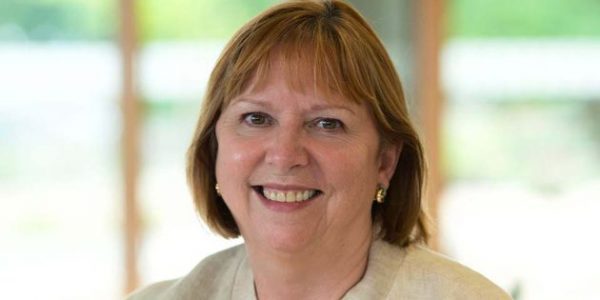The Nuffield Foundation has appointed Sir Alan Wilson as Executive Chair of the Ada Lovelace Institute.
Sir Alan, who is shortly to step down as CEO of The Alan Turing Institute, will take up his new role with immediate effect. He will lead the 18-month development phase of the Ada Lovelace Institute, an independent research and deliberative body with a mission to ensure data and artificial intelligence (AI) work for people and society.
Sir Alan’s first priority as Chair will be to lead an open recruitment process for the Board – which will set the strategy and remit of the Ada Lovelace Institute – and a Director. He will work with independent recruiters Saxton Bampfylde. Recruitment for the Director opens today, and Board opportunities will be advertised in the next few weeks.

Dame Colette Bowe, Trustee of the Nuffield Foundation and Chairman of the Banking Standards Board said:
“We are delighted that Alan has agreed to lead the development of the Ada Lovelace Institute. As CEO of The Alan Turing Institute, he has long been an advocate for greater understanding of the social and ethical implications of data science and AI for a range of industries, while also recognising the social benefits of these technologies.
“These themes are fundamental to the new Ada Lovelace Institute, which will promote informed public understanding of the impact of data and AI on society, guide ethical practice, and undertake research to lay the foundations for a data-driven society with well-being at its core.”
Sir Alan Wilson said:
“The Ada Lovelace Institute presents a rare and exciting opportunity to harness the power of data and AI for people and society, and I look forward to leading its development over the next 18 months.
“A key component of the Institute’s mission is to convene diverse voices to create a shared understanding of ethical issues in data and AI, and my first priority as Chair will be to recruit a Board that reflects this diversity. We are seeking people from different sectors and disciplines to set the strategy and remit of the Ada Lovelace Institute and to actively participate in its work. The Board willconnect academic fields such as philosophy, data science, and social science, with civil society and public deliberation, policy and regulation, and international perspectives.”
About Sir Alan Wilson FBA, FRS
Sir Alan Wilson has been CEO of The Alan Turing Institute for two years. He will step down from this role in September but will continue to work closely with the Institute. He is also Chair of the Home Office Science Advisory Council, and a board member of the Banking Standards Board.
Sir Alan’s previous roles include Professor of Urban and Regional Systems in the Centre for Advanced Spatial Analysis at University College London (2007-2018), Vice-Chancellor of the University of Leeds (1991-2004), Director General for Higher Education in the then DfES (2004 – 2006), and Chair of the Arts and Humanities Research Council (2007-2013). He began his research career in elementary particle physics before moving to the social sciences.
The Ada Lovelace Institute
The Ada Lovelace Institute is an independent research and deliberative body with a mission to ensure data and AI work for people and society. The first of its kind in the UK, the Ada Lovelace Institute will:
- Build evidence and foster rigorous research and debate on how data and AI affect people, groups and society.
- Convene diverse voices to create a shared understanding of the ethical issues arising from data and AI.
- Define and inform good practice in the design and deployment of data and AI.
The Institute has been established by the Nuffield Foundation in partnership with The Alan Turing Institute, the Royal Society, the British Academy, the Royal Statistical Society, the Wellcome Trust, the Omidyar Network’s Governance and Citizen Engagement Initiative, techUK and the Nuffield Council on Bioethics.
The Nuffield Foundation is an independent charitable trust that has long been at the forefront of addressing the ethical questions raised by scientific advancements. In 1991, it established the Nuffield Council on Bioethics, which has been influential in establishing ethical frameworks for policy and regulation relating to innovations in biology and medicine.
The Nuffield Foundation has committed £5 million over five years to establish the new Institute.
Contact: Claire Sewell, csewell@nuffieldfoundation.org / 020 7681 9598 or
Fran Bright, fbright@nuffieldfoundation.org / 020 7681 9586
Notes
- Sir Alan is working with independent recruiters Saxton Bampfylde. Recruitment for the Director of the Ada Lovelace Institute opens today and full details of the opportunity and how to apply are available at www.adalovelaceinstitute.org
- Board opportunities will be advertised in the next few weeks. To be notified when the recruitment is live, sign up for email updates from the Ada Lovelace Institute.
- Follow the Ada Lovelace Institute on Twitter @adalovelaceinst
- The Nuffield Foundation is an independent charitable trust that funds research and student programmes to advance educational opportunity and social well-being across the UK. The research we fund aims to improve the design and operation of social policy, particularly in Education, Welfare, and Justice. Our student programmes provide opportunities for individuals, particularly those from disadvantaged backgrounds, to develop their skills and confidence in quantitative and scientific methods. We are financially and politically independent, but often work in partnership with other organisations that share our aims and interests. www.nuffieldfoundation.org / @nuffieldfound






















